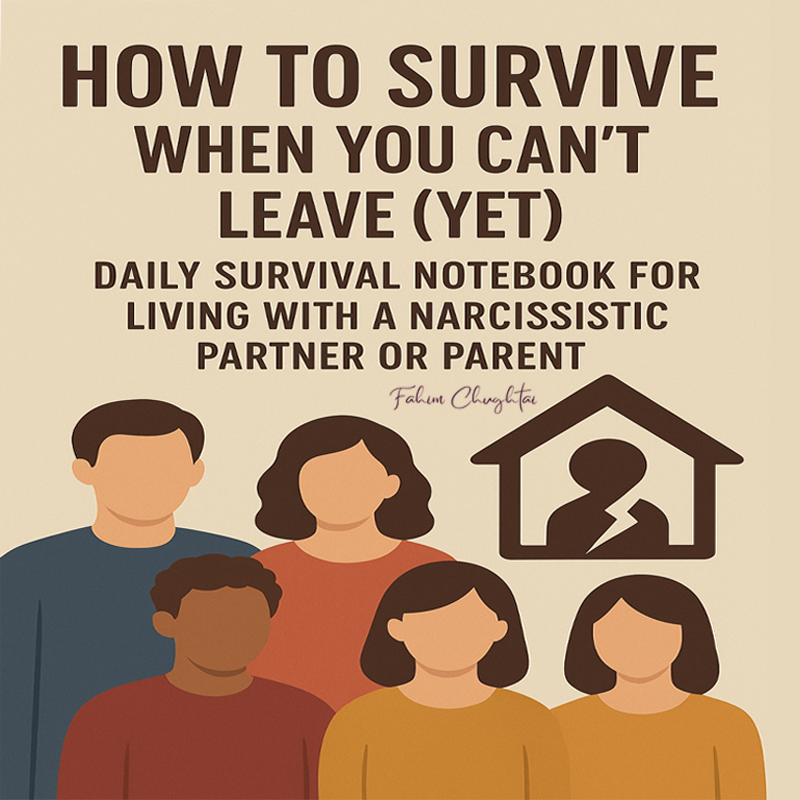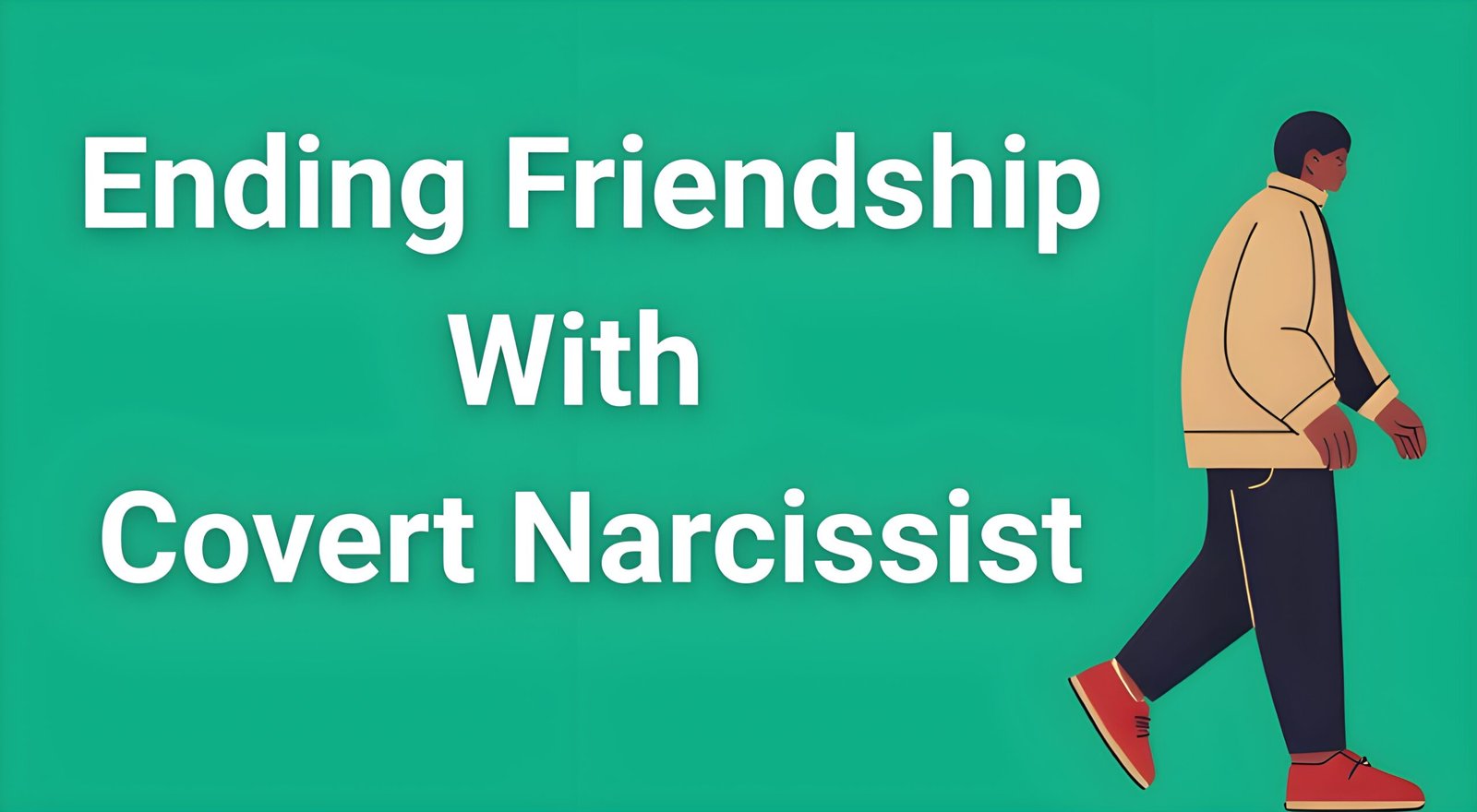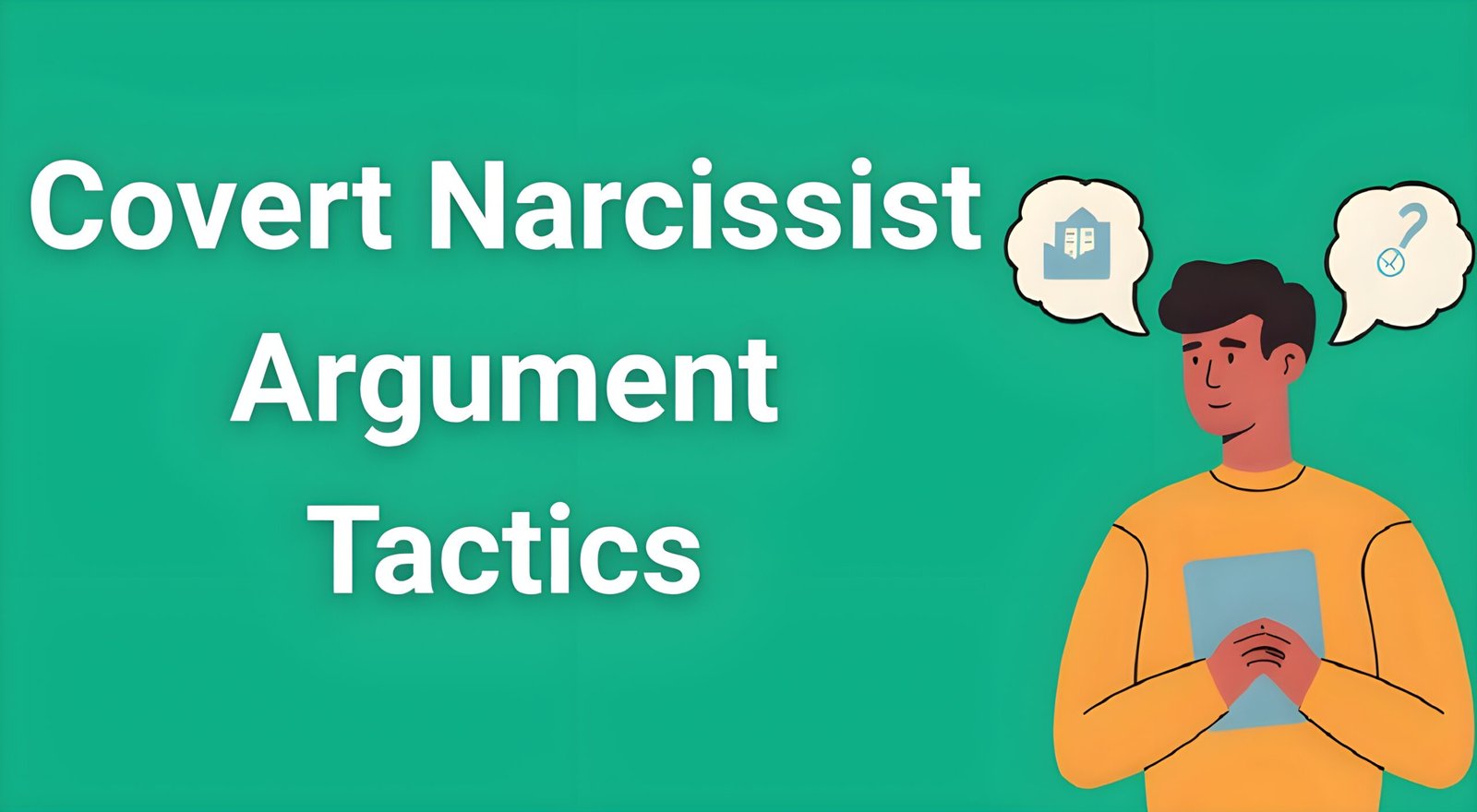Ending a friendship with a covert narcissist feels like trying to escape quicksand – the harder you struggle, the deeper you sink. Unlike their overt counterparts who display obvious grandiosity, covert narcissists operate through subtle manipulation, making you question whether you’re overreacting to their behavior.
- Understanding Your Covert Narcissist Friend
- Recognizing the Damage: When Friendship Becomes Toxic
- The 7-Step Process for Ending Friendship With Covert Narcissist
- Understanding Trauma Bonding in Narcissistic Friendships
- The Aftermath: What to Expect
- Protecting Yourself from Future Narcissistic Friendships
- When Professional Help Becomes Necessary
- Professional Resources for Recovery
- Breaking the Trauma Bond Cycle
- Frequently Asked Questions
- Conclusion
If you’re reading this, you’ve likely spent months or years walking on eggshells, constantly apologizing for things that aren’t your fault, and feeling emotionally drained after every interaction. The exhausting cycle of hope and disappointment has left you wondering if you’re losing your mind.
You’re not crazy. You’re dealing with one of the most psychologically challenging relationship dynamics – a friendship with someone who lacks empathy while appearing vulnerable and misunderstood.
Understanding Your Covert Narcissist Friend
Before ending any friendship with a covert narcissist, understanding their behavioral patterns helps you recognize why traditional friendship approaches have failed. These individuals master the art of playing the victim while systematically undermining your confidence and autonomy.
Am I Dealing With a Covert Narcissist — or Just Toxic Behavior?
Covert narcissists excel at emotional manipulation through what appears to be vulnerability. They share endless stories of how others have wronged them, positioning themselves as perpetual victims deserving of your unlimited support and understanding. This victim narrative becomes the cornerstone of your friendship, demanding constant sympathy while offering little emotional reciprocity.
The subtle put-downs disguised as concern represent another hallmark of covert narcissistic friendship. Comments like “I’m only saying this because I care” typically precede criticism designed to erode your self-esteem. These verbal jabs target your appearance, life choices, or capabilities in ways that seem caring but inflict lasting psychological damage.
Competitive dynamics infiltrate every aspect of your relationship with a covert narcissist friend. They cannot celebrate your successes without minimizing them or redirecting attention to their own achievements. Your good news becomes a trigger for their insecurity, leading to passive-aggressive responses or dramatic personal crises that demand immediate attention.
Recognizing the Damage: When Friendship Becomes Toxic
The decision to end a friendship with a covert narcissist often comes after recognizing specific patterns of psychological harm. These relationships create lasting damage that extends far beyond typical friendship conflicts or misunderstandings.
Physical symptoms frequently manifest from prolonged exposure to covert narcissistic manipulation. Chronic anxiety, insomnia, panic attacks, and depression commonly develop as your nervous system responds to constant psychological stress. When you can directly connect these symptoms to interactions with your friend, the relationship has crossed into dangerous territory.
The erosion of your identity represents another critical indicator that the friendship must end. Covert narcissists systematically dismantle your confidence, opinions, and sense of self-worth through subtle criticism and emotional manipulation. You may find yourself constantly second-guessing your thoughts, feelings, and memories – a clear sign of psychological abuse.
Social isolation becomes inevitable as covert narcissist friends monopolize your time and attention while criticizing your other relationships. They create artificial urgency around their problems, demanding immediate availability regardless of your other commitments. This pattern gradually distances you from healthy relationships that could provide perspective and support.
The 7-Step Process for Ending Friendship With Covert Narcissist
Step 1: Document the Pattern
Before confronting your covert narcissist friend or making any decisive moves, create a written record of problematic behaviors and incidents. This documentation serves multiple purposes – it validates your experiences, prevents gaslighting during confrontations, and provides clarity when doubt creeps in.
Write down specific examples of manipulation, boundary violations, and emotional abuse. Include dates, circumstances, and your emotional responses to these incidents. This record becomes your reality check when the covert narcissist attempts to rewrite history or minimize their behavior.
The documentation process often reveals patterns you hadn’t consciously noticed. Many people discover that their friend’s crises consistently coincide with their own good news or important events. This timing isn’t coincidental – it’s a calculated attempt to maintain attention and control.
Step 2: Build Your Support Network
Ending a friendship with a covert narcissist requires emotional support from people who understand manipulation tactics and can provide objective perspective. Identify trusted friends, family members, or professionals who can offer guidance throughout this challenging process.
Covert narcissists often isolate their targets from other relationships, making this support network particularly crucial. If you’ve lost touch with other friends due to your narcissistic friend’s demands, now is the time to reconnect and rebuild those healthy relationships.
Consider seeking professional support through therapy or counseling services specialized in narcissistic abuse recovery. Understanding the psychological dynamics at play helps you process the relationship’s impact and develop strategies for moving forward.
Step 3: Set Clear Boundaries
Boundary setting with covert narcissists requires specific, measurable limits rather than general requests for better treatment. These individuals excel at finding loopholes in vague boundaries while appearing to respect your wishes.
Establish concrete limits around communication frequency, topics of discussion, and availability for their emergencies. For example, instead of saying “don’t call me so much,” specify “I’m available for phone calls on Tuesday and Thursday evenings between 7-8 PM.”
Prepare for immediate boundary testing. Covert narcissists typically escalate their behavior when faced with new limits, creating urgent situations designed to override your boundaries. Maintaining consistency during this testing phase is crucial for long-term success.
Step 4: Reduce Contact Gradually
The “gray rock” method proves highly effective when ending friendship with covert narcissist individuals. This approach involves becoming as boring and unresponsive as possible, making yourself an unappealing source of narcissistic supply.
Respond to their messages with brief, factual statements that provide no emotional content for them to manipulate. Avoid sharing personal information, expressing opinions, or engaging in their dramatic narratives. This emotional withdrawal typically causes them to seek attention elsewhere.
Gradually increase the time between your responses to their communications. If you typically respond immediately, wait several hours, then extend to days. This process helps both you and them adjust to reduced contact before complete separation.
Step 5: Prepare for Escalation
Covert narcissists rarely accept the end of a friendship quietly. Expect escalating behavior designed to regain control and attention, including increased contact attempts, crisis situations, and attempts to involve mutual friends.
The “hoovering” phase often follows initial separation attempts. Your former friend may suddenly become the person you always hoped they could be – apologetic, insightful, and committed to change. This temporary transformation is manipulation designed to draw you back into the relationship.
Prepare responses for common manipulation tactics in advance. Having scripted responses prevents you from being caught off guard by their emotional appeals or dramatic crises. Consistency in your responses demonstrates your commitment to ending the friendship.
Step 6: Implement No Contact
Complete no contact represents the most effective method for ending friendship with covert narcissist individuals permanently. This approach involves blocking all forms of communication and removing them from your social media accounts.
Block their phone number, email address, and social media profiles. Ask mutual friends not to share information about you with your former friend. Consider changing your phone number if harassment continues despite blocking efforts.
No contact extends beyond direct communication to include avoiding places where you might encounter them. While this may seem extreme, covert narcissists often use “accidental” encounters to reinitiate contact and manipulation.
Step 7: Focus on Recovery
The aftermath of ending friendship with covert narcissist requires active recovery work to heal from psychological manipulation and rebuild your sense of self. This process takes time and may benefit from professional guidance.
Trauma bonding often complicates recovery from narcissistic friendships. The cycle of abuse and intermittent kindness creates powerful psychological attachments that persist even after recognizing the relationship’s toxicity. Understanding this dynamic helps explain why leaving feels so difficult despite clear evidence of harm.
Rebuilding your identity involves rediscovering interests, opinions, and values that may have been suppressed during the friendship. The covert narcissist’s constant criticism and control gradually eroded your confidence in your own thoughts and feelings. Recovery involves reclaiming this authentic self.
Understanding Trauma Bonding in Narcissistic Friendships
The difficulty of ending friendship with covert narcissist often stems from trauma bonding – a psychological phenomenon where intermittent reinforcement creates powerful emotional attachments. This neurological response explains why logic alone cannot overcome the pull to return to toxic relationships.
Trauma bonds form when periods of abuse alternate with moments of kindness, creating a biochemical addiction similar to substance dependence. Your brain releases dopamine during the brief positive interactions, making you crave more contact despite the overall pattern of harm.
The cycle typically begins with idealization, where the covert narcissist presents themselves as the perfect friend who truly understands you. This honeymoon period creates intense bonding that becomes the standard against which all future interactions are measured.
Breaking trauma bonds requires understanding that your attachment to this person isn’t evidence of love or friendship – it’s a neurological response to intermittent reinforcement. This knowledge helps remove the shame and self-blame that often accompany the difficulty of leaving toxic relationships.
Professional support becomes particularly valuable when addressing trauma bonding. Specialized recovery programs can help rewire these neural pathways and develop healthier relationship patterns for the future.
The Aftermath: What to Expect
Ending friendship with covert narcissist brings both relief and unexpected challenges. Understanding common post-separation experiences helps normalize your recovery process and prepare for potential obstacles.
Grief for the friendship you thought you had is normal and necessary. You’re not mourning the actual relationship but rather the potential you believed existed. This fantasy bond felt real because covert narcissists excel at presenting an idealized version of themselves during the early stages of friendship.
Smear campaigns often follow the end of narcissistic friendships. Your former friend may spread rumors or lies about you to mutual acquaintances, portraying themselves as the victim of your unreasonable behavior. Maintaining dignity and avoiding defensive responses typically proves most effective in these situations.
The healing process involves rediscovering your authentic self outside the context of the toxic friendship. You may realize how much of your personality, interests, and opinions were suppressed or modified to accommodate their needs and avoid conflict.
Protecting Yourself from Future Narcissistic Friendships
Recovery from ending friendship with covert narcissist includes developing skills to recognize and avoid similar relationships in the future. Understanding your vulnerabilities and establishing protective strategies prevents repeated patterns of abuse.
Empathetic individuals often attract narcissistic friends because of their willingness to provide unlimited support and understanding. Learning to recognize when your empathy is being exploited helps maintain healthy boundaries in future relationships.
Red flags in early friendships include love bombing behaviors, rapid intimacy development, and excessive sharing of personal struggles. Healthy friendships develop gradually with reciprocal sharing and respect for boundaries from the beginning.
Trust your instincts when something feels off about a new friend’s behavior. If you find yourself constantly making excuses for someone’s actions or feeling drained after interactions, these are warning signs worth investigating.
When Professional Help Becomes Necessary
Some situations require professional intervention when ending friendship with covert narcissist, particularly when safety concerns exist or psychological symptoms become severe. Recognizing when to seek help prevents further harm and accelerates recovery.
Persistent thoughts of self-harm or suicide require immediate professional attention. The psychological manipulation inherent in narcissistic relationships can lead to severe depression and hopelessness that necessitate clinical intervention.
Complex trauma symptoms may develop from prolonged exposure to covert narcissistic abuse. These can include emotional dysregulation, dissociation, chronic anxiety, and difficulty trusting your own perceptions. Specialized trauma therapy addresses these symptoms effectively.
Legal consultation may become necessary if your former friend engages in stalking, harassment, or defamation. Documentation of their behavior provides evidence for restraining orders or other legal protections if the situation escalates.
Professional Resources for Recovery
Getting expert analysis of your specific situation can provide invaluable clarity and direction during the recovery process. Many people find that understanding the exact manipulation tactics used against them accelerates healing and prevents future victimization.
A comprehensive narcissistic abuse assessment examines your relationship patterns, identifies specific manipulation techniques, and provides personalized strategies for recovery. This type of professional evaluation helps distinguish between normal relationship conflicts and systematic psychological abuse.
Still Living With Them? You’re Not Helpless.

The process typically involves detailed questionnaires about your friendship dynamics, communication patterns, and emotional responses to various situations. Expert analysis of this information reveals manipulation tactics you may not have recognized and validates your experiences.
Professional assessment reports often include specific recommendations for healing approaches, boundary setting strategies, and warning signs to watch for in future relationships. This personalized guidance proves invaluable for long-term recovery and protection.
Breaking the Trauma Bond Cycle
Specialized recovery programs address the neurological aspects of trauma bonding that make ending friendship with covert narcissist so psychologically challenging. These evidence-based approaches focus on rewiring the brain’s response patterns rather than relying solely on willpower.
You’ve Seen the Patterns. Now Break the Bond.
The recovery process typically involves four distinct phases, each addressing specific aspects of trauma bond healing. Emergency stabilization techniques help manage the acute symptoms of separation, while cognitive restructuring addresses the distorted thinking patterns that maintain unhealthy attachments.
Daily structured exercises gradually retrain your brain’s response to triggers and cravings for contact with your former friend. This systematic approach proves more effective than attempting to break trauma bonds through willpower alone.
Many recovery programs include community support components, connecting you with others who have experienced similar relationships. This peer support provides validation, encouragement, and practical strategies from people who understand your experience firsthand.
Frequently Asked Questions
Q: How long does it take to recover from ending friendship with covert narcissist?
A: Recovery timelines vary based on the relationship’s duration and intensity, but most people begin noticing improvement within 30-90 days of implementing no contact. Full recovery typically takes 6-18 months with proper support and healing work.
Q: Will my covert narcissist friend try to come back into my life?
A: Yes, most covert narcissists attempt to reestablish contact through various manipulation tactics including fake emergencies, apologies, gifts, or involving mutual friends. Maintaining strict no contact is crucial for preventing re-engagement.
Q: How do I handle mutual friends who don’t understand the situation?
A: Focus on protecting your own well-being rather than convincing others of your perspective. Set boundaries around discussing your former friend and avoid defending your decision to end the friendship.
Q: Is it possible to have a healthy friendship with a covert narcissist?
A: Genuine personality change in narcissistic individuals is extremely rare and typically requires years of specialized therapy. Most mental health professionals recommend no contact as the safest approach for your psychological well-being.
Q: What if my covert narcissist friend threatens self-harm when I try to leave?
A: Contact emergency services if you believe the threat is genuine, but recognize that these threats are often manipulation tactics. You are not responsible for another adult’s mental health or safety decisions.
Q: How do I rebuild my self-esteem after this friendship?
A: Focus on activities that bring you joy and accomplishment, reconnect with supportive people, and consider professional therapy to address the psychological impact of the abuse. Self-compassion and patience are crucial during this healing process.
Conclusion
Ending friendship with covert narcissist requires courage, strategy, and ongoing commitment to your psychological well-being. The subtle nature of covert narcissistic abuse makes these relationships particularly challenging to escape, but freedom is absolutely possible with the right approach.
Remember that your decision to end this friendship demonstrates strength, not weakness. Recognizing manipulation and choosing to prioritize your mental health represents a powerful act of self-preservation and growth.
The road to recovery may include setbacks and moments of doubt, but each step away from toxicity brings you closer to authentic, healthy relationships. Your future self will thank you for having the courage to break free from this damaging dynamic.
Professional support, whether through specialized assessment services, trauma bond recovery programs, or ongoing therapy, can significantly accelerate your healing process and provide the tools necessary for lasting recovery. You deserve relationships based on mutual respect, genuine care, and emotional safety.
Your journey to freedom starts with a single decision – choosing yourself over the illusion of friendship that has been slowly destroying your peace of mind. Today can be the beginning of your recovery and return to authentic, healthy connections with people who truly value and respect you.






